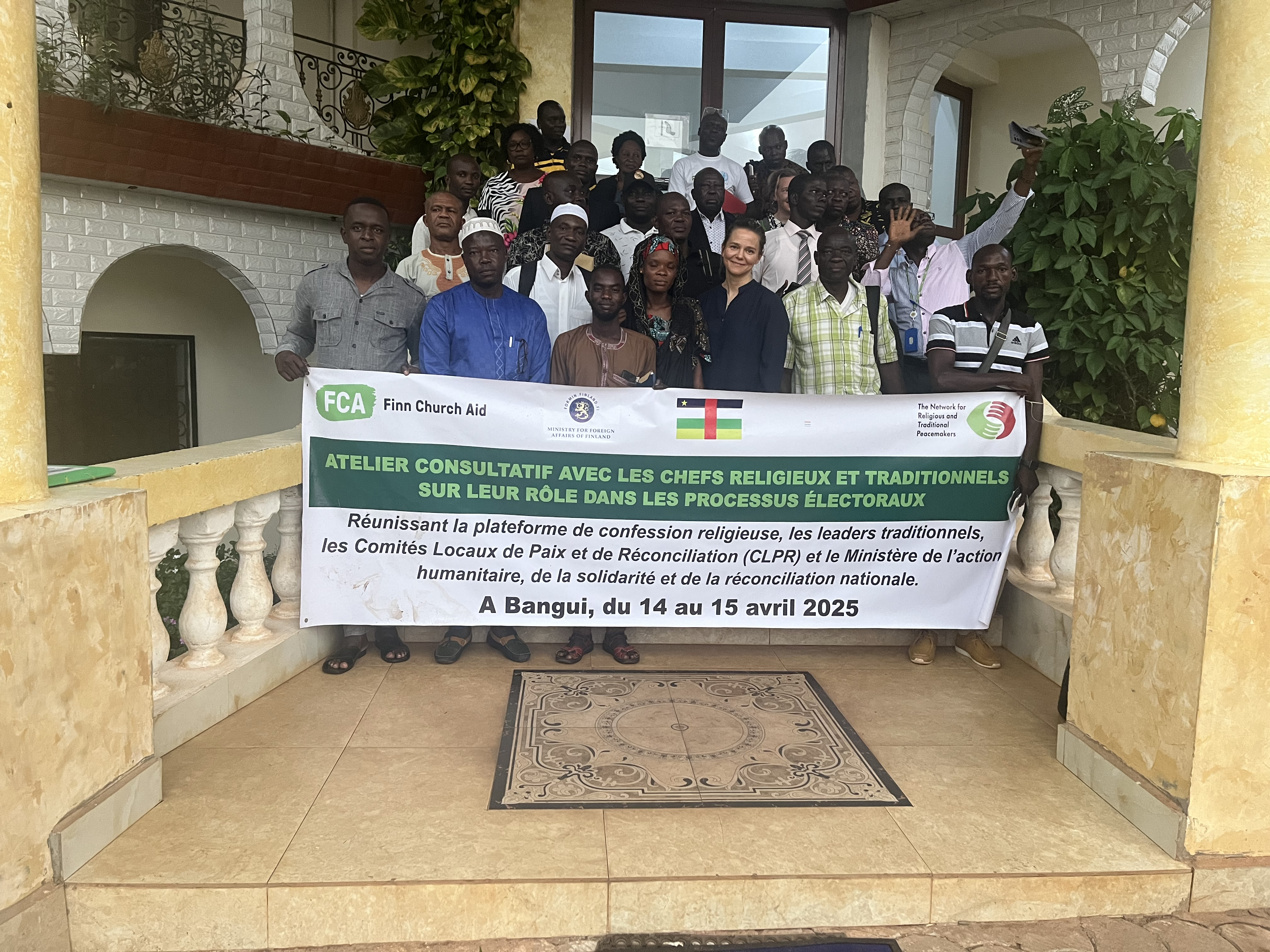Investing in Local Voices for Peace is Essential as Central African Republic Prepares for Its 2025 Electoral Cycle
April 2025
Central African Republic (CAR) has faced repeated cycles of political instability, armed conflict, and humanitarian crises. Although recent years have seen some improvements in security and governance, tensions remain, and elections often heighten political polarization.
As the Central African Republic approaches its 2025 national and local elections, democratic resilience must be built from within—by empowering the people who hold communities together in times of crisis. To sustain peace before, during and after the elections, the support has to reach the social fabric, where legitimacy, trust, and participation reside. For CAR, that means investing not only in electoral infrastructure but in the leadership of its traditional and religious leaders, women, and youth.

The Influential Voice of Religious and Traditional Leaders
Religious and traditional leaders have long held moral authority and social trust across the Central African Republic. During the height of the conflict, Christian, Muslim, and traditional leaders formed the Plateforme des Confessions Religieuses, an influential interfaith initiative that advocated for peace and dialogue. Their united voice helped calm tensions and provide a counter-narrative to hate and division.
In the run-up to the 2025 elections, these leaders can again play a crucial role by promoting civic education, encouraging voter participation, mediating local conflicts, and fostering tolerance among communities. Their presence in the communities makes them well-positioned to reach citizens where state institutions may be weak.
Women’s Inclusion is Not Due to a Lack of Will But a Lack of Access
Women in CAR have historically been underrepresented in political life, despite their active role in community leadership and peacebuilding. Cultural barriers, lack of resources, and security concerns continue to limit their political participation. Yet their involvement is vital to creating a more inclusive and representative democracy.
Empowering women to vote, run for office, and take part in electoral observation efforts can significantly improve the quality of the democratic process. Their perspectives are central in addressing community needs, advocating for social services, and fostering nonviolent political engagement.
Youth as Agents of Peace and Progress
With over 60% of its population under the age of 25, it is fair to say that CAR’s future will be shaped by its youth. That makes youth both a risk and a resource. If not included in the decision-making or provided opportunities to influence, young people are vulnerable to manipulation, marginalization, and even recruitment by armed actors. However, if meaningfully engaged, they can also serve as a stabilizing force. Youth are also powerful agents of change. Investing in youth engagement can empower the next generation to take ownership of their country’s future.
In light of this situation, the Peacemakers Network and Finn Church Aid CAR organised a two-day consultative workshop to with 30 religious and traditional leaders, women and youth in Bangui in April 2025. During the workshop, the participants discussed the current context in CAR as the elections are approaching, identified the main concerns and needs of the actors in their efforts to promote peace and the key challenges they are facing regarding the election preparedness.
As an outcome of the two-day consultations, a Plan of Action was formulated outlining the concreate actions the participants will jointly take to support the peaceful election process, preparation, during and after elections, across communities.
Religious and traditional leaders can continue to serve as trusted mediators and advocates for peace. Women must be given equal space to participate and lead. Youth should be recognized not as a threat but as partners in building a stable democracy. Therefore, Peacemakers Network and Finn Church Aid are committed to support these vital actors in the peace efforts before, during and after the elections.
